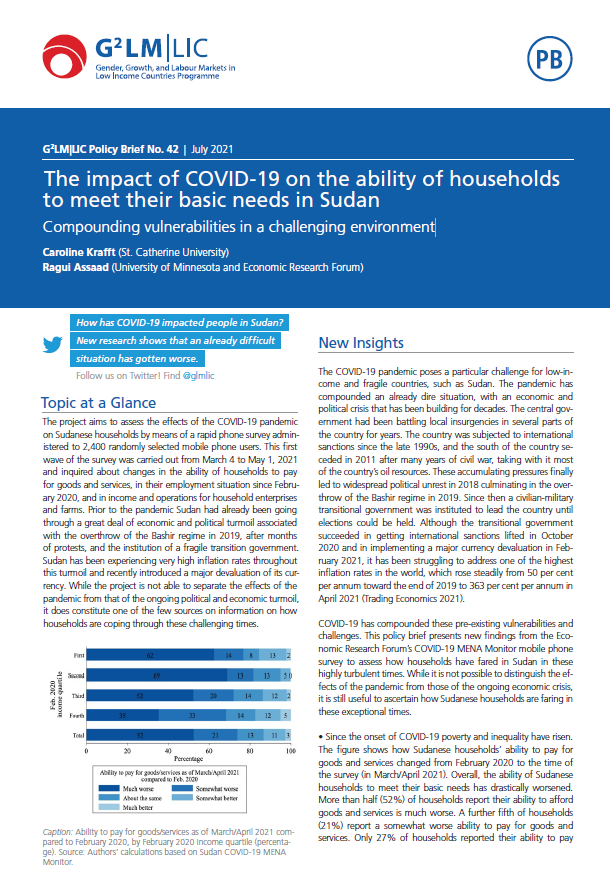The project aims to assess the effects of the COVID-19 pandemic on Sudanese households by means of a rapid phone survey administered to 2,400 randomly selected mobile phone users. This first wave of the survey was carried out from March 4 to May 1, 2021 and inquired about changes in the ability of households to pay for goods and services, in their employment situation since February 2020, and in income and operations for household enterprises and farms. Prior to the pandemic Sudan had already been going through a great deal of economic and political turmoil associated with the overthrow of the Bashir regime in 2019, after months of protests, and the institution of a fragile transition government. Sudan has been experiencing very high inflation rates throughout this turmoil and recently introduced a major devaluation of its currency. While the project is not able to separate the effects of the pandemic from that of the ongoing political and economic turmoil, it does constitute one of the few sources on information on how households are coping through these challenging times.
